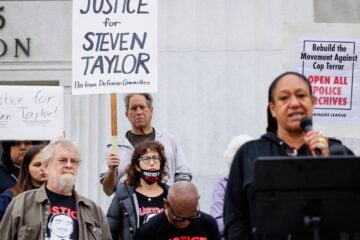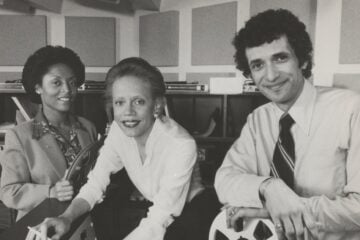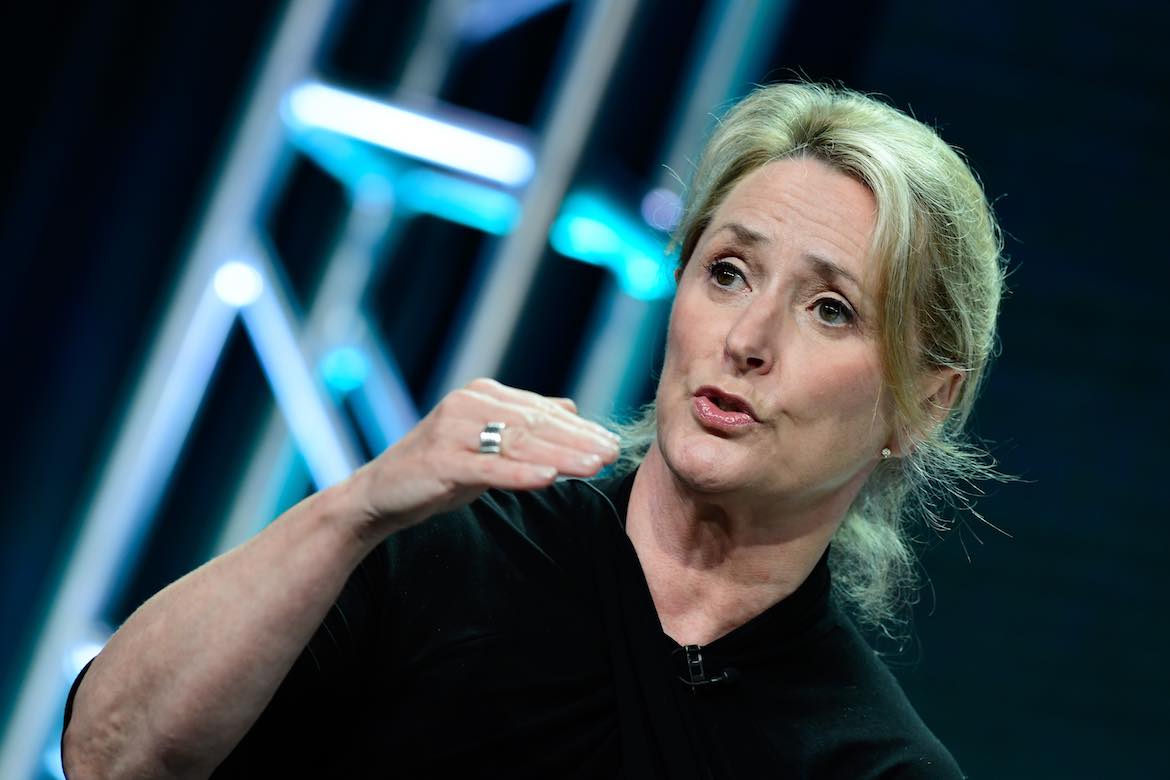NPR website increases focus on stations, retires pop-up player
NPR unveiled changes to its website Tuesday that include the retirement of a much-maligned pop-up audio player and deeper integration with member stations’ brands and content.
 The biggest change for most NPR.org visitors will be the demise of the pop-up player, which previously opened a new window whenever a user listened to audio. An audio player box will now live in the corner of the website and stay in place as users navigate the site. A similar audio player was also deployed in a website redesign at WBEZ in Chicago.
The biggest change for most NPR.org visitors will be the demise of the pop-up player, which previously opened a new window whenever a user listened to audio. An audio player box will now live in the corner of the website and stay in place as users navigate the site. A similar audio player was also deployed in a website redesign at WBEZ in Chicago.
The changes will also “connect users more deeply with their favorite Member stations,” according to a memo to stations by NPR’s Joel Sucherman, senior director of digital products, and Scott Montgomery, managing editor of digital news.
The site continues to feature co-branding with stations, as determined by the user’s location. Users will also have the option to listen to a live stream of the local station’s broadcast in the player box at the site’s top-right corner, also located at the top of a page on mobile. A music section in the audio box will showcase streams from NPR and member stations.
“As always, the stream activity will count toward your station’s streaming,” the memo said. “… When the user plays a station stream, the player will link to the station’s donation page.”
Along with the technical updates, NPR has introduced new opportunities for advertising on its digital audio content. With “Supported Selections,” NPR.org’s audio player and NPR One will feature old NPR stories curated around a sponsor’s theme.
“NPR will hand-curate a selection of audio stories that resonate with NPR.org users and reflect the ideas of the sponsor’s campaign,” NPR said on its sponsorship website.
The sponsor will be recognized in a promo, “throughout the listening experience” and during a 15-second audio message during playback of certain stories, according to Erica Osher, director of NPR’s sponsorship product team, in a post on NPR’s site.
“Bringing storytelling expertise to bear for supporting brands and audiences, these collections are presented to users through an audio promo as they are listening in the new player,” Osher wrote. “Users will have the option to play these stories immediately or to add the stories to their queue.”
(Update: Osher clarified for Current that companies can choose branding themes for the Supported Selections, but they do not select the featured NPR stories, which is handled by the network’s sponsorship team. The players will display the sponsor’s ad during the stories, and sponsor messages play before, between and after the selected pieces.)
NPR is also offering “Supported Podcasts,” sponsorship messages around NPR-produced podcasts in the new audio player and on NPR One. It also includes “branding throughout the listening experience” and “primary mid-roll placement in the podcast.”
New sponsorship on the audio player’s mobile version features a 15-second sponsorship message and a “branded, tappable image,” according to NPR.
NPR said its digital team is working on other improvements to the audio player that will roll out later this spring.
Related stories from Current:







Very interesting idea. And the mobile website m.npr.org is a new idea.
#ThisIsNPR
Why “connect users more deeply with their favorite Member stations,” In this Internet age? The stations are becoming outmoded as transmission platforms. They are a sponge, except insofar as they contribute content like WBEZ , WBUR and WGBH. KQED in SF has a huge audience but makes no contribution to syndication. I guess they also contribute funds to pay the journalists and pundits.
If the member stations went away tomorrow, NPR would be flat broke within weeks…a few months at most. Member station programming fees pay for more than half of NPR’s total budget.
There’s an entire industry out there devoted to convincing people that AM/FM are worthless relics of a bygone age, when in reality more than 90% of all pubradio content is still consumed over AM/FM.
I do understand this reciprocal arrangement. It will be some time before all cars are outfitted with Internet stations like Sirius, but is the (near term) future. We are in the beginning of era of eliminating middle men. Tesla, Direct shipping by the wine industry, Yelp.
Now is the time to start determining how to bring this to reality sooner rather later. User fees a la Siriusx Radio will exceed the fees submitted by the stations. Stop worrying about offending the stations.
I have no involvement with “an entire industry” I just watch our local station fill up with bureaucrats, with the exception of our local talk show host, most of whom do little but fund raise to increase their bloated salaries. If they streamlined and ran a lean operation like KALW also in SF fees would be paid plus a surplus achieved.
Wait, I’m confused: does this mean that content delivered to listeners on NPR One can be, in part, controlled by sponsors? That’s a TERRIBLE idea. It violates every possible tenet of the editorial firewall. Please tell me I’m misunderstanding something here.
Hi Brad — we reported that “NPR will hand-curate a selection of audio stories that resonate with NPR.org users and reflect the ideas of the sponsor’s campaign.” So it sounds like the “control” rests with NPR, not a sponsor. We did ask NPR for an example of what one of these “Supported Selections” packages will be like, but they didn’t reply.
Hi Mike, thanks for the clarification…which, unfortunately, doesn’t really clarify things. That’s not your fault, of course! :) But until NPR tells us exactly what the heck they’re talking about, then we just don’t know.
In the absence of further clarity, I would reiterate that ANY linking of editorial decisions to sponsors’ desires, breaches the firewall. That’s bad, bad mojo, man.
Hi Brad — see above, we did get some more information from NPR, and we’ve updated the post.
Just checked the re-design out and it’s slick. I like the incorporation of the local station, though being from Boston it’d be nice if I could have 2 “favorites”, as I’m sure many transplants might like to do (their hometown station + their adopted town’s station). Unfortunately this, along with NPR One, is just another half measure.
When I click on Morning Edition the story list should include the local segments from my “favorite” station(s). They should be branded; they should have a “donate” button and there should be an audio intro from the local station when they play. Forcing me to click over to another site to see what content they offer is a waste of my time.
As for the NPR One app, I was in the beta test group and I gave up on it almost as soon as I downloaded it. What a waste. The “regular” NPR app is so much better (though it’s still a half measure, as it doesn;t include content from local sations). I don’t want “curated” content. Give me a list of what’s been on your programs and I’ll build my playlist. Include content from my local station, just as I’d hear if I was listening locally.
Heck, you can even give me the CHOICE to listen to a curated stream of content, but the fact that I can’t actually control my experience is a deal-breaker for me.
It’s reallly a shame, becuase with podcasts I get so much control over what I listen to that I have switched entirely over to that medium for my news. I barely bother with NPR anymore. It’s just not worth the trouble. And that’s a shame, because they produce so much vital content.
One final note: I wish that The Pub would be much more critical about NPR One. I haven’t heard or read anything about it being successful, which leads me to believe that it isn’t. If it was, NPR would be shouing about its breakthrough from the rooftops. I think that its fundimental flaws sabotaged it from the very start and nobody seems to want to call them out about the massive waste in resources it has most likely turned out to be.